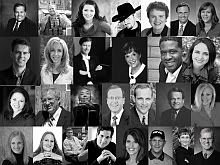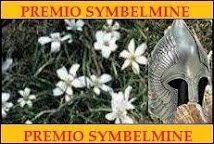Big Love is a television series (in North America) that, as far as I have determined, depicts a man who is married to more than one woman. I understand that the show also suggests that some of its characters are faithful members of The Church of Jesus Christ of Latter Day Saints (sometimes called Mormons). (I have only seen advertisements for the series - not the show itself.) The polygamous relationships and religious activity portrayed in the show are probably interestingly dramatized. I expect that the quips are witty and that there is plenty of emotional and sexual tension proceeding from the mouths and actions of well-groomed actors and actresses. I think, however, that caution is in order.
Interestingly enough, when we, as human beings, watch a television show or read a book, it is easy to embrace the notion that we are witnessing a lot of truth blended with a little fiction. After all, television and print media can often be defined this way. The real trick is to determine how much of the dramatization is truth and how much is fiction?
Our own particular experience with life lets us filter what we see and come to our own personal conclusion about the percentage of truth and fiction we are witnessing. The opinion of another may even help us decide our own minds. But what happens if our personal filter lacks sufficient experience, information, understanding or maturity to accurately process the scenes that our eyes and ears are gathering up for us to consider? This dilemma, of passing accurate judgement, induces me to worry about a show that dramatizes polygamous and religious relationships - especially when the writers, actors, actresses, producers, etc are diligently and dogmatically working to ensure the success of their TV series. Perhaps Big Love is an accurate portrayal of both plural marriage relationships and the church, but before you decide, I would invite you to consider this…
I've heard it said, "You should never spoil a good story with the truth." For some writers, this line seems to capture the essence of their work. After all, when your next meal depends on your ability to entertain, I can see how easy it might be to rationalize your creative process into ignoring self-evident moral standards and write what sells.
As a non-fiction writer, I have been tempted to embellish truth. As a fiction writer, I have considered creating character interactions that are surreal or amoral, but still believable. Character interactions, in print or on the screen, may be entertaining, but some I have seen and read are nothing more than the effects of an overzealous, morally rationalizing writer trying to provide sufficient sensory experience for their audience, thereby hoping to ensure an enduring pay check (and a next meal). When a book or television program purposefully purports to portray truth, while underhandedly slipping fiction into our minds, I would be a poor citizen of earth if I didn’t condemn the action. I hope that Big Love isn't guilty of this.
Polygamy is a lifestyle that most of us know very little about. How much do you know about The Church of Jesus Christ of Latter Day Saints? In my opinion, it is in the best interest of us all to become informed – because others have the right to write whatever they want, be it truth, fiction or a blend of some sort. If you are interested, the church has made an official response to an upcoming episode of Big Love. If you want to read a good story that portrays polygamy, you could try the book, Season of Sacrifice by Tristi Pinkston.
Saturday, March 14, 2009
Subscribe to:
Post Comments (Atom)









No comments:
Post a Comment